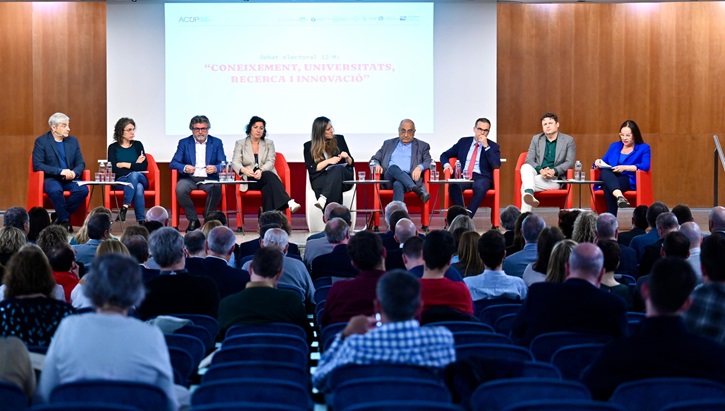The parties standing for election in Catalonia take on the major challenges facing public universities


The candidates have stated that they are aware of the critical moment in which the Catalan universities find themselves, with teaching and research staff (PDI) and technical, management and administration and services staff (PTGAS) in an extreme situation. It is a delicate moment, which makes it decisively difficult to implement the transformations necessary for Catalan public universities to continue to be at the forefront in Europe and globally. In this sense, both the PSC and ERC and JxC parties have recognised that “a shock plan is necessary” in terms of staff. The acting minister, Joaquim Nadal (ERC), has added the commitment to obtain “a net contribution of resources from the Ministry” to adapt the staffing levels to the Organic Law of the University System (LOSU).
On behalf of Junts per Catalunya, Antoni Castellà called for a “knowledge revolution”, in which “beyond a government department, the strengthening of university policy implies real autonomy, funding and stability”. This objective is linked to the demand of Catalan universities to achieve a basal and recurrent public funding of €1.4 billion by 2025, and to reach 1% of Catalonia’s GDP in public investment in universities by 2030. “The rectors are right in their demand for a 1.4 billion budget”, admitted Nadal, adding that “compared to health or education, a small increase in funding would be extraordinary for the university. For Alícia Romero (PSC), an ambitious university policy is necessary: “if knowledge and talent are what really move the world, we must be able to generate the best talent, and the universities will do so if we provide them with resources”.
The university system is probably the public policy with the greatest return to society in relation to the investment it receives. In this sense, research is a good example. “We have a university system with all the universities oriented towards research and with a very powerful pole for attracting talent”, said Castellà, who argued that this is the model that makes the Catalan university system unique and, therefore, it is necessary to promote research. Nadal and Romero agree, although with nuances. For the minister, “the Catalan research system is one of excellence” and will be so as long as the research carried out in the universities is not separated from the unique research of the CERCA centres. Romero, even more forceful, considers that Catalan universities have only a few resources available for research.
